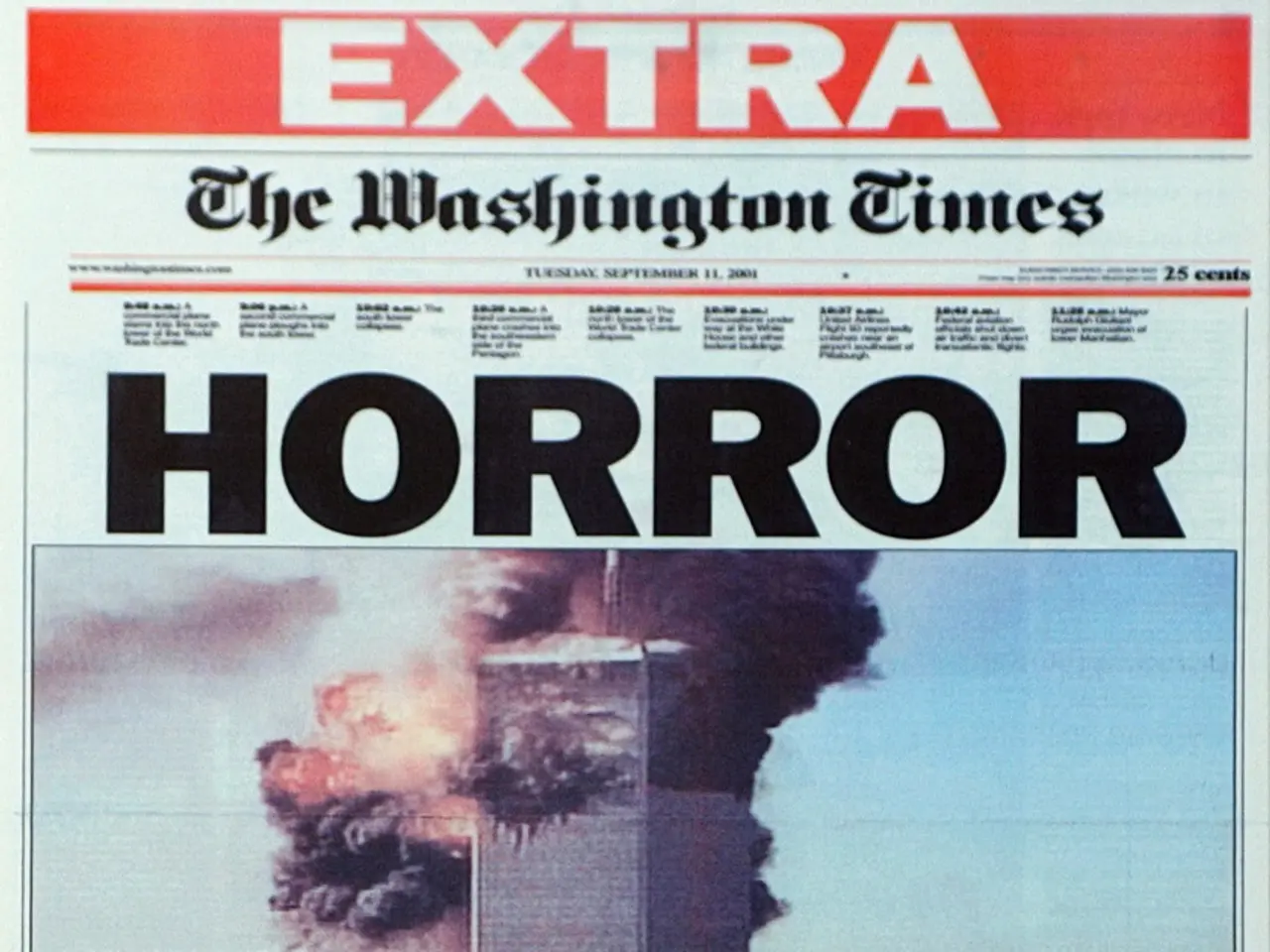Impact of a Potential Ukraine Peace Agreement on Financial Matters
In the coming days, the world eagerly awaits a meeting between US President Donald Trump and Russian counterpart Vladimir Putin, scheduled for August 15, 2022 in Alaska. The focus of the discussion will be on finding a resolution to the ongoing conflict in Ukraine, a country that has been at the centre of global turmoil for some time now.
If a peace deal is reached, it could bring about significant changes in various aspects, particularly in terms of global inflation and financial markets.
Global Inflation Impact
A credible peace agreement is expected to ease energy supply constraints, particularly in Europe, by potentially improving hydrocarbon flows and removing or relaxing sanctions on Russia. This would likely lower energy prices, a key driver of recent inflation spikes globally, thus helping to reduce inflationary pressures.
Financial Markets Impact
European financial institutions, especially banks, could experience a rebound. Lending activity would accelerate, provisioning costs ease, and capital markets activity (M&A, syndicated loans) would likely increase, boosting bank profitability and valuation multiples. European equities, currently trading at a significant discount to US equities due to war-related uncertainty, may witness a re-rating and a narrowing of this valuation gap.
Investment banks involved in infrastructure, energy, and reconstruction finance would also benefit, although the persistence of sanctions on Russia could temper enthusiasm toward Russian financial assets. The reconstruction of Ukraine, potentially costing around USD 524 billion over a decade, would generate substantial investment opportunities in bonds and equities linked to rebuilding efforts.
Impact on Specific Investments
- Gold: Gold often serves as a safe haven during geopolitical risks and inflation. The cessation of conflict and easing inflation might dampen gold’s appeal, potentially leading to price pressure downward as investors shift toward riskier assets like equities. However, ongoing uncertainties over sanctions and geopolitical risks mean gold may retain some safe haven demand in the near term.
- Defense Stocks: A peace agreement would typically reduce demand for military spending and defense stocks. However, defense companies might still benefit from ongoing modernization and reconstruction-related contracts. If peace is partial or fragile, defense spending might not drop sharply, preserving some upside for defense equities.
In summary, a Ukraine peace deal is expected to lower energy prices and inflation, boost European financial markets, and shift investment flows away from defensive assets like gold and toward sectors linked to reconstruction and financial recovery. Defense stocks could soften, depending on the durability of peace and ongoing geopolitical risks.
It's important to note that there is uncertainty about whether Trump will be able to reach an agreement that both sides in the conflict find acceptable. Trump has threatened to impose tougher economic sanctions if Putin does not agree to a ceasefire.
The economic decimation of Ukraine has contributed to food inflation in various countries, including the UK where it reached 4.5% in the year to July 2022. Ukraine is a key producer of wheat, often referred to as the breadbasket of Europe. The resolution of the conflict could help alleviate this issue, leading to a potential easing of pressure on energy-intensive sectors such as chemicals and manufacturing in the UK.
Lastly, Brent crude prices have fallen this week ahead of the meeting between Trump and Putin, alleviating concerns about inflationary pressures in Europe. However, the impact on gold prices, which have been driven up by global conflict and trade uncertainty, remains to be seen.
[1] Financial Times, "Ukraine peace deal could boost European banks and infrastructure stocks", August 10, 2022. [2] Bloomberg, "Ukraine Peace Deal Could Send Gold Lower and Boost European Stocks", August 11, 2022. [4] Reuters, "Ukraine peace deal could boost European financial markets, impact specific investments", August 12, 2022.
- If the meeting between President Trump and President Putin results in a peace deal for Ukraine, investment in gold might decrease as investors shift toward riskier assets like equities due to lower inflationary pressures.
- European financial institutions, particularly banks, could experience a rebound from increased lending activity, reduced provisioning costs, and an increase in capital markets activity, boosting their profitability and valuation multiples.
- The ongoing uncertainty about the outcomes of the meeting and potential tariffs (imposed by Trump) could temper enthusiasm toward Russian financial assets.
- The resolution of the conflict in Ukraine could help alleviate food inflation in countries like the UK, potentially easing pressure on energy-intensive sectors such as chemicals and manufacturing.




